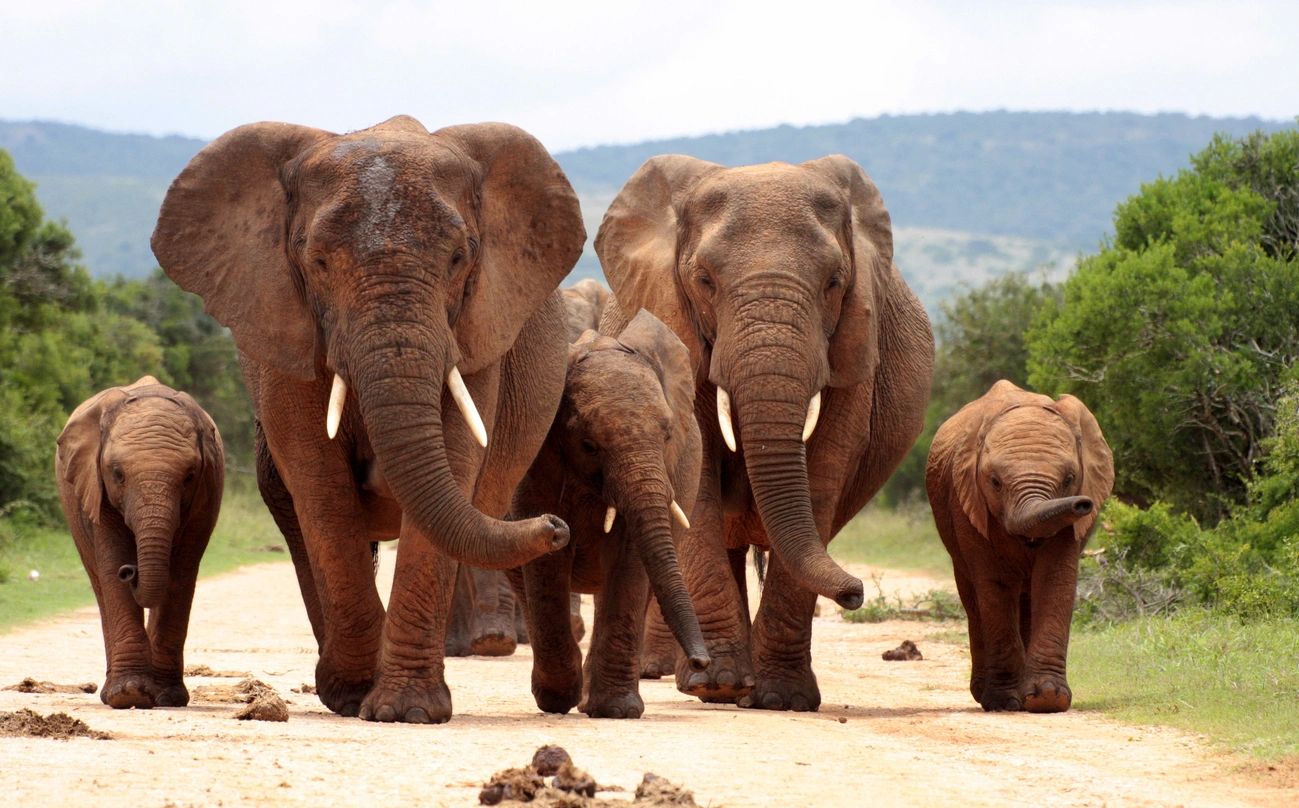The Ultimate Guide to Planning an African Safari
True confession: an African safari was not on my bucket list. Not because I didn’t want to go, but the logistics of planning such a trip were dizzying for me. Long (and expensive) flights. Health and vaccination requirements. Logistics of getting around in a foreign country. Not knowing the cost of an African safari. Not to mention finding someone to mind the pets for an extended period. But when my brother suggested this as a special family trip, I acquiesced. And we ended up having the best time. So I thought I’d share my expert tips on planning an African safari.
Quick backstory. My mother passed away and we really wanted to do something to celebrate her life. She loved to travel, often as a tag along with her kids, so we decided an epic trip was the best way to honor her. My brothers and I planned a South African Safari and it was the perfect trip.
Read my story on Business Insider, “When our mom died, my brothers and I spent the $75,000 inheritance on a South African safari. The trip helped us grieve.”
Planning an African safari can seem daunting at first, but with the right preparation and a clear guide, it can become the adventure of a lifetime. Whether you’re worried about vaccinations, travel logistics, or the best safari destinations, or even African safari cost, this guide will help you navigate the process. After experiencing the best South African safari myself, I’ve compiled all the essential tips you need to plan your own unforgettable trip.
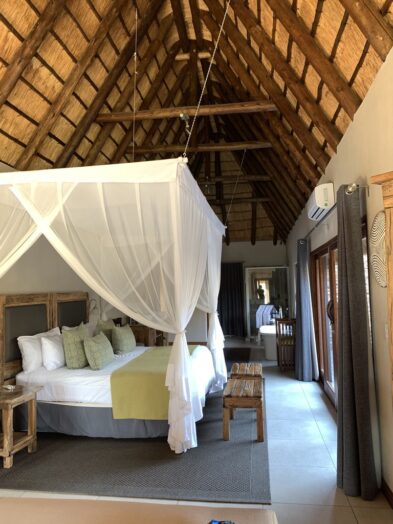
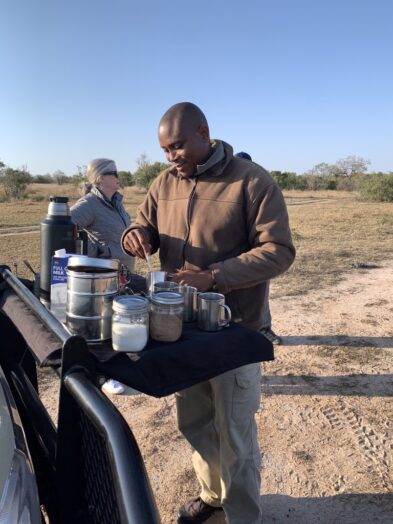
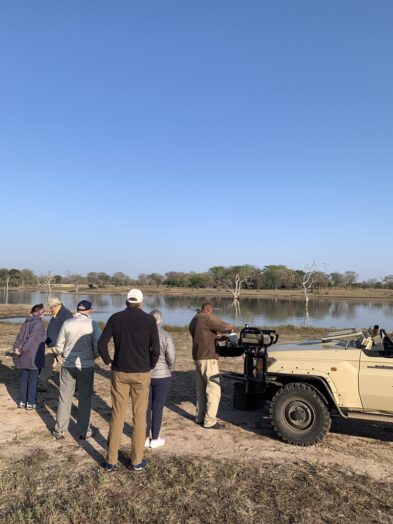
Tips For Planning A Safari
Planning a safari can feel overwhelming, but with the right guidance, it can also be the trip of a lifetime. Here are some essential tips to help you get started:
1. Decide What You Want to See – Do you want to witness the Great Migration? Spot the Big Five? Or experience a water-based safari? Your wildlife goals will help determine the best destination and time of year.
2. Choose the Right Time to Go – Wildlife viewing varies by season. For example, dry season (generally June–October) is best for game drives, while the rainy season brings lush landscapes and baby animals but may limit accessibility in some areas.
3. Pick the Right Destination – Different parks offer VERY different experiences so I’m spelling it all out for you in the section below.
4. Work with a Safari Planner or Tour Operator – Planning can be complex—especially when coordinating flights, transfers, and lodges. An experienced safari planner can create a seamless itinerary and often has insider access to the best lodges and guides.
5. Set a Realistic Budget – Safaris can range from budget to ultra-luxury. Consider not just lodging, but also park fees, tips, flights, travel insurance, and any necessary gear.
6. Book Early – Lodges in popular parks fill up quickly, particularly during the Great Migration or South Africa’s winter. Booking 6–12 months in advance is often recommended.
7. Think About Your Travel Style – Do you prefer guided group tours, private game drives, or self-driving? Would you rather stay in tented camps or luxury lodges? Tailor your safari to your comfort level and travel preferences.
8. Consider Health and Safety – Check if any vaccines are required or recommended (such as yellow fever or malaria prophylaxis). Travel insurance is a must for medical emergencies or unexpected changes.
Choosing the Right Safari Destination
Africa offers a variety of safari experiences depending on the region you choose. Each destination has its own unique appeal, so consider what kind of wildlife and environment you’re most interested in. Here’s a breakdown of some of the top safari regions:
1. Masai Mara, Kenya
Masai Mara is the place to go if you want to see The Great Migration (July to October). It’s also known for big cat sightings and vast open plains. The Masai Mara is world-famous for its role in the Great Migration, where millions of wildebeest, zebras, and gazelles cross the Mara River in a dramatic survival journey. It’s also known for its abundance of lions, cheetahs, and leopards.
2. Serengeti National Park, Tanzania
The Serengeti is known for year-round wildlife viewing, the Great Migration, and iconic African landscapes. As part of the same ecosystem as the Masai Mara, the Serengeti offers expansive savannahs and exceptional game viewing. The migration moves through here for most of the year, especially during calving season in the southern Serengeti (January–March).
3. Kruger National Park, South Africa
I went to Kruger for our safari and as this destination promises, we were blessed with Big Five sightings. Kruger is one of Africa’s most established and visitor-friendly parks. It’s easy to access, has excellent infrastructure, and offers a wide variety of safari lodges—from budget to luxury. We stayed at Arathusa Safari Lodge and loved the personalized service, game drives, and close encounters with wildlife.
4. Okavango Delta, Botswana
This is the spot if you’re interested in water-based safaris, birdwatching, and remote luxury experiences. A UNESCO World Heritage site, the Okavango Delta is a lush, seasonally flooded inland delta that offers a totally different safari experience. Think mokoro (dugout canoe) rides through quiet waterways, abundant birdlife, and exclusive lodges in pristine wilderness.
5. Etosha National Park, Namibia
Namibis is known for its unique desert wildlife, salt pans, and self-drive safaris. Etosha’s stark, otherworldly landscapes are home to a surprising range of animals, including black rhinos, elephants, and lions. The park’s waterholes make wildlife viewing relatively easy, especially during the dry season.
6. South Luangwa National Park, Zambia
Known as the birthplace of the walking safari, South Luangwa offers a more rugged and immersive experience. It’s a fantastic destination for travelers seeking a quieter, less commercial safari. There are walking safaris, intimate camps, and off-the-beaten-path adventures.
What To Do On An African Safari? A Typical Day
For those new to the safari experience, here’s what a typical safari day looks like. Each day is packed with excitement and memorable wildlife encounters.
Morning and Afternoon Game Drives
Safari days are structured around early morning and late afternoon game drives. You’ll wake up around 5:30 a.m., have a quick coffee, and head out for a 6 a.m. game drive. Although getting up early may not sound appealing, you won’t want to miss the amazing wildlife that’s most active in the cool morning hours. Missing a drive means missing out—like the morning I slept in and missed seeing leopard cubs. So when planning an African safari, keep in mind that you may have to adjust your sleep schedule.
Each game drive lasts about 3-4 hours, with a coffee or snack break in between. You’ll then return to the lodge for breakfast and relaxation before the afternoon game drive begins. In the afternoon, the structure is similar, but instead of coffee, you’ll stop for sundowners—an African tradition of sipping cocktails while watching the sunset over the plains.
The Role of Guides and Spotters for Animals
Your safari experience will be enhanced by the knowledgeable guides and spotters who accompany you on game drives. They’re experts at tracking animals, reading their behaviors, and sharing fascinating facts about the wildlife and ecosystem. My spotter, Ishmael, and guide, Roy, had an impressive ability to spot tracks and decipher which animals had passed through and when. Their insight made each drive an educational and thrilling adventure.
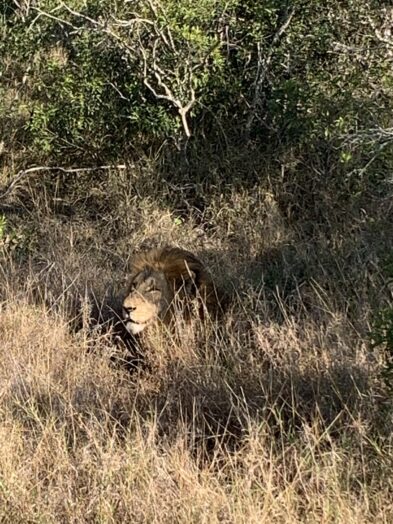
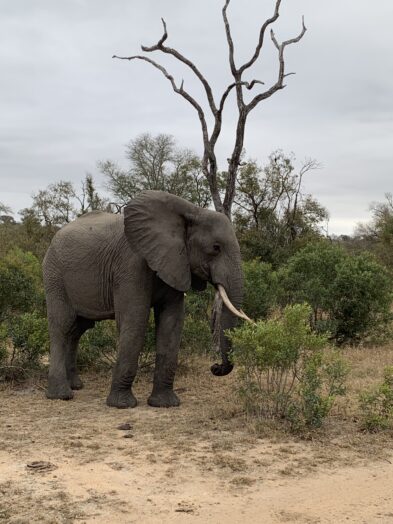
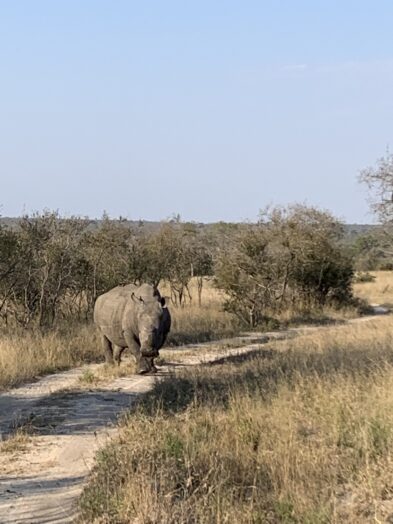
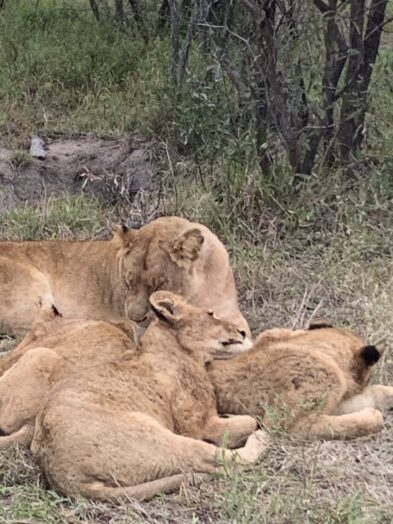
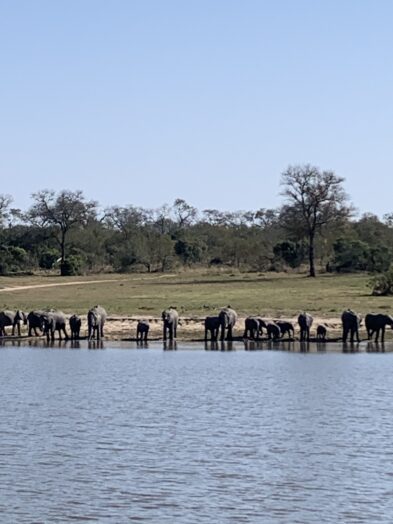
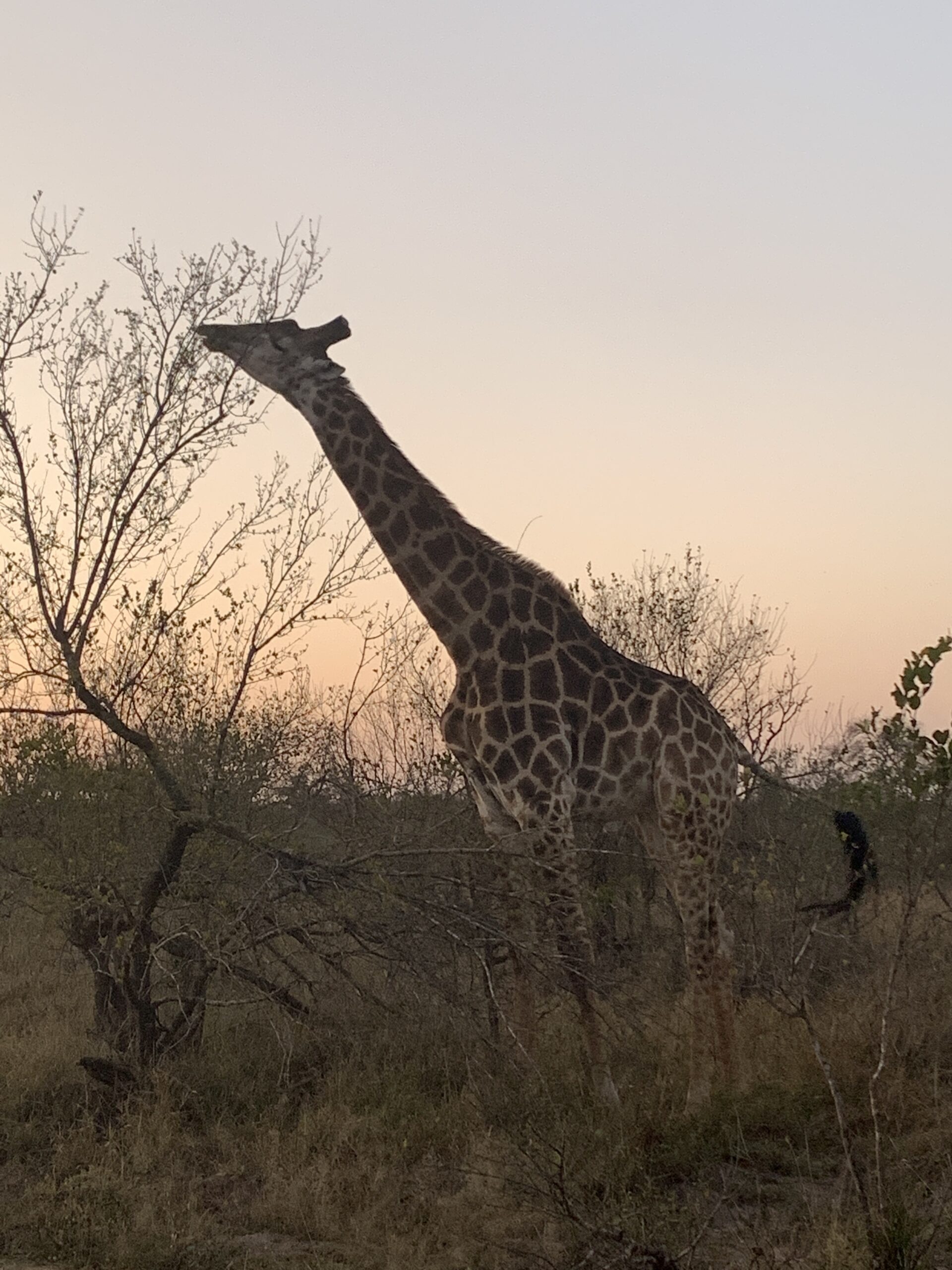
Finding the Best Safari Lodges
Safari lodges vary widely in style, cost, and inclusivity. Most lodges offer all-inclusive safari packages that cover accommodation, meals, and game drives. It’s important to choose a lodge that gives you the best chance of seeing wildlife, especially the Big 5. Research the lodge’s proximity to the airport and the types of wildlife you can expect to see. For those looking for a more adventurous experience, some lodges offer safari tents for a more immersive stay in the bush. If it’s a luxury African safari you’re seeking, be sure to check out the higher end resorts.
Vaccinations and Medications You Need For a Safari
Health preparation is an essential part of planning your safari. Depending on your destination, you may need vaccinations such as typhoid or hepatitis. Some areas are also high-risk for malaria, so it’s important to consult with your healthcare provider to determine if malaria pills are necessary. We opted out of taking malaria pills since we visited South Africa during the dry season, but your health decisions should always be based on your specific destination.
What to Pack for an African Safari
Packing smartly for a safari will make your trip much more comfortable. I found that layering is key—mornings are cold, but by midday, you’ll want to strip down to cooler clothes. Neutral colors like khaki are recommended to avoid attracting mosquitoes or animals. Here’s a quick list of essentials:
- Lightweight, neutral-colored clothing
- Hats, scarves, and sunglasses for sun protection
- Comfortable walking shoes for bush walks
- Binoculars for spotting wildlife from a distance
- Sunscreen and insect repellent
- Medications and a small first-aid kit
Be mindful of luggage restrictions if you’re taking a bush flight. Soft-sided duffle bags are often required for small planes.
Best Time of Year for an African Safari
The best time of year for an African safari depends on your destination and the wildlife you want to see. Seasons affect not only the weather but also the visibility of wildlife. Keep in mind, the African safari cost will depend on when you travel.
The Great Migration of wildebeest and zebras in Kenya’s Masai Mara and Tanzania’s Serengeti is one of the most spectacular wildlife events on the planet. This typically happens from July to October, making it the best time to visit for those interested in witnessing the migration.
The dry season from June to October is also ideal for spotting wildlife in East Africa, as animals gather around water sources and the vegetation is less dense.
In Southern Africa (including South Africa, Botswana, and Namibia), the dry season runs from May to October and offers great wildlife viewing as animals congregate around water sources. The shoulder seasons of April/May and September/October provide milder weather and fewer tourists.
How Much Does An African Safari Cost?
One of the trickiest parts of planning a safari is managing transportation and budgeting for the trip.
Many safari lodges are located far from major airports, so you’ll need to arrange transportation. Depending on the lodge’s location, this could involve a combination of commercial flights and bush planes. If you want to avoid long and bumpy drives, I highly recommend flying directly into an airstrip near your lodge. It may be more expensive, but it saves time and avoids discomfort.
Safaris can be pricey, especially when you factor in accommodation, park fees, transportation, and vaccinations. It’s important to budget carefully and research safari packages that include game drives and meals. Expect to pay more for luxury lodges and private tours. However, some lodges and travel operators offer packages and deals, especially during off-peak seasons.
An African safari is truly a once-in-a-lifetime experience, and with the right planning, it can be stress-free and memorable. Whether you’re heading to South Africa’s Kruger National Park or Kenya’s Masai Mara, careful preparation will ensure you make the most of your trip. From choosing the best destination to packing smartly and arranging transport, every step counts toward creating an unforgettable safari adventure.
Connect with other travelers interested in safari
Have you ever been on safari? Or are you dreaming of going on one? Tell the group all about it in the comments below and I’ll send you my exclusive list for subscribers only of my favorite trip planning resources – everything from pet sitters to lounge access to highly exclusive food events.
This blog post may contain affiliate links, meaning that if you click on a link and make a purchase, I may receive a small commission at no extra cost to you. I only recommend products and services I truly believe in and use myself.

